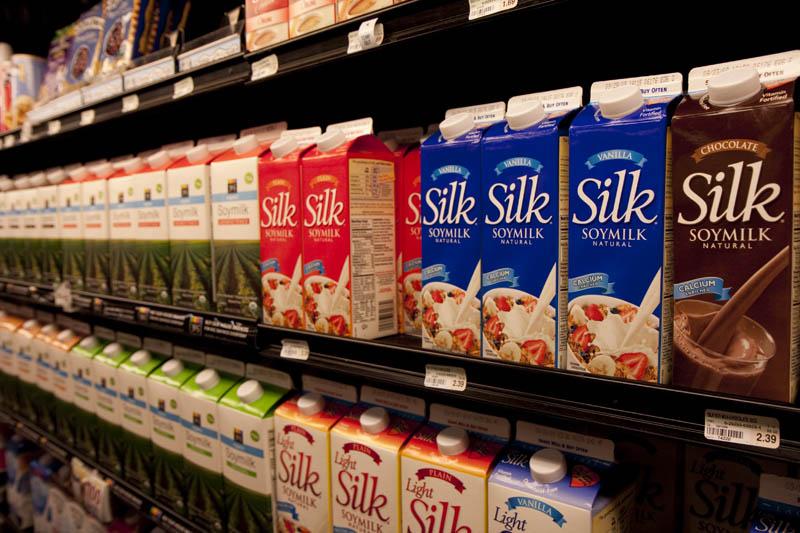Anti-soy hype in the media has been refuted by several soy experts, including Cal State Long Beach professors, giving this ingredient the green light for students to eat everyday in moderation.
Among other beans and legumes, soy received abundant attention in the media — from both sides, according to John Livesey, a scientific officer in the New Zealand Christchurch Hospital’s endocrinology department.
Soy comes from soybeans and is full of protein, carbohydrates, fiber, healthy fats, vitamins and minerals, said Gail Frank, a CSULB nutrition professor.
The FDA also authorized labels in 1999, stating that soy products reduce the risk of coronary heart disease in diets low in saturated fat and cholesterol, according to Michael Herndon, FDA press officer.
“Soybeans have more protein than any other bean and are the only plant-based protein source that contains a high proportion of all nine essential amino acids, making it a source of high quality, complete protein,” Frank said.
The most well known study about soy-causing dementia in older men was done in Hawaii among middle-aged Japanese Americans.
However, Livesey said this study did not show the “cause and effect” between tofu consumption and dementia because the study was solely “epidemiological,” which finds out how many people have an ailment, without considering other factors that could affect statistics.
For example, Livesey said tofu in Hawaii might have been high in aluminum, which is also known to cause dementia. Furthermore, tofu consumers are vitamin B12 deficient because of low meat consumption, which would also cause dementia. This study concluded that there is a correlation between high tofu consumption and dementia in old age.
In addition, a lifetime of eating soy also reduces a woman’s risk of getting breast cancer, based on a recent study published in the Journal of Cancer Epidemiology, Biomarkers and Prevention, Frank said. “Researchers at Vanderbilt University found that soy has either no impact or a favorable impact on breast cancer outcomes,” Frank said. “American Cancer Society suggests up to three servings of soy foods a day is safe to consume for a breast cancer survivor.”
“There is no human data that show that soy products, including soy formulas, are unsafe,” Herndon said. “In fact, soy products have a history of safe use in the United States and elsewhere in the world.”
Until recently, several studies yielded to conclusions suggesting that soy can cause other forms of cancer, memory problems, thyroid abnormalities in soy-fed infants and early puberty onset in soy-fed girls, according to Livesey.
“Whole soy foods do not cause breast cancer,” Frank said.
Soy products were applauded for their benefit in cancer prevention, reducing menopausal symptoms, the risk of heart disease and the risk for osteoporosis in women, Livesey said.




